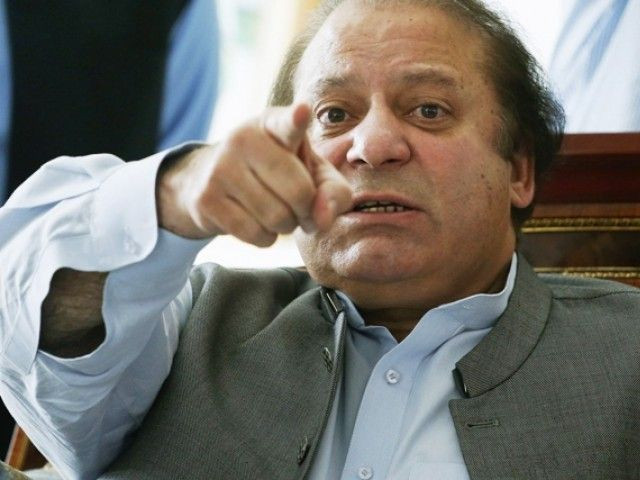Pakistan Post-Election: What Can We Expect From New Prime Minister Nawaz Sharif?

It’s been four days since Pakistan went to the polls and completed its first successful and peaceful transition from one elected civilian government to the next.
Amid a bit of clamoring over some alleged election-rigging, Nawaz Sharif of the Pakistan Muslim League Party emerged as the clear victor, and now many people are turning to wonder what’s next for this troubled nation?
Pakistan’s future will be intimately linked not only to the fate of neighboring Afghanistan and U.S. drone missile policy, but also to the complex internal economic and ethnic struggles that reared their heads during the election. While Saturday's poll witnessed one of the highest voter turnouts in Pakistan’s history, many of those voters were in the eastern Punjab province. Turnout was significantly lower in Pakistan’s other three provinces, particularly in Baluchistan, said Daniel Markey, a senior fellow at the Council on Foreign Relations, in a media call Wednesday.
Baluchistan encompasses around 40 percent of Pakistan’s land area, but has less than 5 percent of the country's population. It is the site of much unrest, due in part to the presence of separatists.
“We must see this through the color of Pakistan's ethnic fragmentation, Pakistan's urban-rural divide,” said Husain Haqqani, a former Pakistani ambassador to the U.S.. “Turnout was 80 percent in Punjab, which is Nawaz Sharif's home base and also [challenger ] Imran Khan's in some ways. But it was extremely low in Baluchistan, as low as 20 percent, according to election commission figures, and 5 percent, according to private observers.”
Markey noted that in Baluchistan "it’s a difficult place to campaign, it’s almost impossible for journalists to get stories out, and it’s a difficult place to vote from. This will reinforce the notion, the correct notion, that this is a deeply troubled province. Militancy and violence remain high. Provincial alienation is quite real. Sharif will have to try and remedy this.”
Sharif, now the head of the government for the third time since his first two separate premierships in the 1990s, used the campaign to declare his intentions to open up better trade relations with India, crack down on extremist groups, and engage with the United States, both to assist with the upcoming political transition in Afghanistan in 2014, and to discuss the controversial issue of U.S. drone strikes in Pakistan.
Haqqani, who said he “had the privilege of being one of the many people that Mr. Sharif put into prison in 1999,” remained skeptical about Sharif’s ambitions, pointing out that Sharif had promised former U.S. President Bill Clinton that he would form a special Pakistani task force to root out Osama Bin Laden -- and this was in the 1990s, before the attacks of Sept. 11, 2001.
“I don't know what kind of people actually bought into it, but the Americans did give Pakistan money to try and create that task force,” Haqqani said. “So will he come up with clever ideas like that this time too? I think that, yes, it would probably happen.”
With respect to Sharif's plan to stamp out extremist elements in Pakistan, including the Taliban, that remained an open question.
“He’s been associated, and affiliated, with some of the more extreme organizations in Punjab,” said Markey. “The question is whether he’ll try to forthrightly tackle the problems.”
“It’s not clear how he feels about these groups,” former U.S. Ambassador to Pakistan Cameron Munter added. “He can go on [as an] arbiter in this debate, but only after he has established himself as credible, clean, powerful, understanding leader in the country.”
On the question of India, Haqqani was similarly pessimistic, saying Sharif would likely make “superficial” gestures toward India with such measures as sponsoring more cricket matches and diplomatic outreach.
“But strategically, will he … put Kashmir on the back burner and move forward? I don’t see that happening,” Haqqani added.
Haqqani, Markey and Munter all acknowledged that the success of the election, allegations of rigging notwithstanding, was a hugely positive step for Pakistan.
Munter was also a little more bullish on Sharif than Haqqani.
“I’m optimistic that he’s sincere in turning over a new leaf,” Munter said, adding that the world should look to Sharif’s first 100 days as a time when the new prime minister will shore up the economy and establish his governing credibility, before tackling the harder issues.
“There are positive signs, but lots of uncertainty,” Munter said.
© Copyright IBTimes 2024. All rights reserved.




















